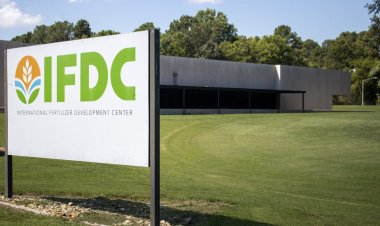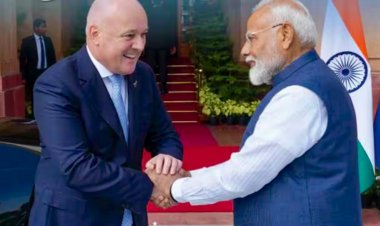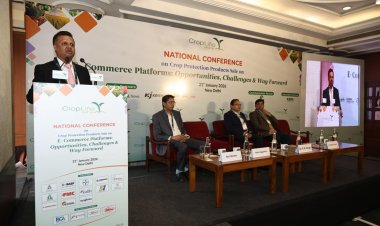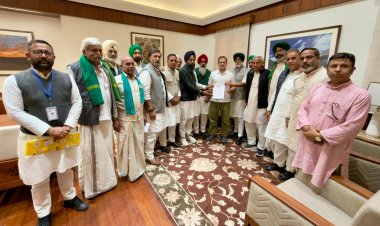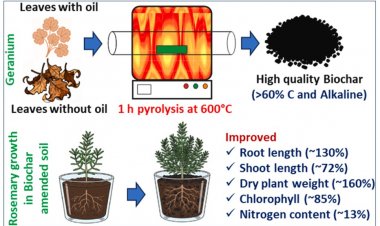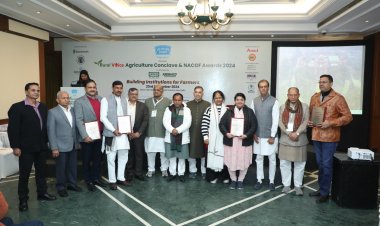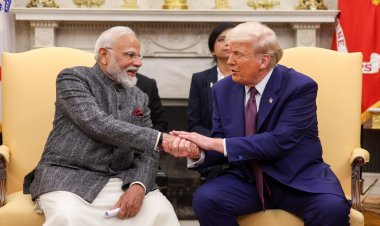Merger of CGIAR Research Centres into “One CGIAR” poses great risks for food security and sovereignty: UN Special Rapporteur Michael Fakhri
Michael Fakhri, the UN Special Rapporteur on the right to food, is deeply concerned about the consequences of the ongoing restructuring of the Boards of Trustees of Consultative Group on International Agricultural Research (CGIAR) Centres in the Global South. In a public statement on the governance changes, he feels that the merger of the CGIAR Research Centres into “One CGIAR” poses great risks to the food security and sovereignty of many countries in the Global South. People’s access to and control over germplasms will be affected. The new One CGIAR restructure would accelerate the influence of private corporations and reduce that of host countries.
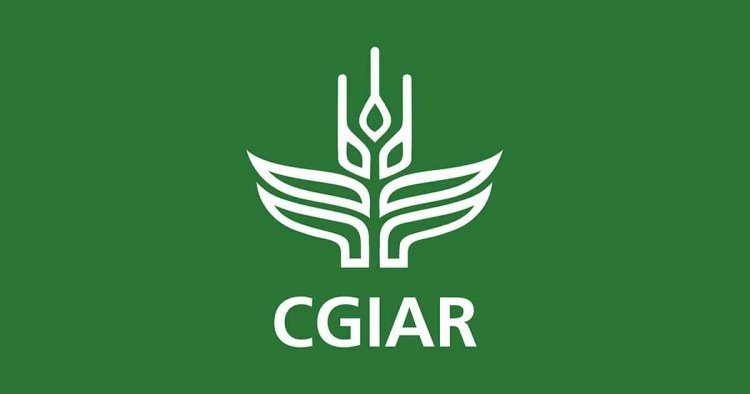
Michael Fakhri, the UN Special Rapporteur on the right to food, is deeply concerned about the consequences of the ongoing restructuring of the Boards of Trustees of Consultative Group on International Agricultural Research (CGIAR) Centres in the Global South. In a public statement on the governance changes, he feels that the merger of the CGIAR Research Centres into “One CGIAR” poses great risks to the food security and sovereignty of many countries in the Global South.
Countries mostly in Africa and Asia will be affected by this restructuring, says Fakhri. These countries are already in an extremely vulnerable situation because of the ongoing food crisis and a high degree of national debt. The restructuring process will undoubtfully reduce people’s access to and control over hundreds of thousands of germplasm collections, adds Fakhri. He feels that the new One CGIAR restructure would accelerate the influence of private corporations over public agricultural extension and support programmes while reducing the role and influence of host countries over regional CGIAR Research Centres.
The Special Rapporteur shares the deep concerns expressed by many of the affected stakeholders over the fact that the restructuring is taking place without due consultation or agreement from host countries, farmers and peasants, international mechanisms and other relevant stakeholders. The process behind One CGIAR poses a direct threat to the right to self-determination and the ability of states to set their own agricultural research agendas, food sovereignty and the ability for local communities to control their own food system, and regional food security.
CGIAR (established in 1971) has 15 Research Centres worldwide which are non-profit research organizations conducting innovative research. Together, says the statement, the 15 CGIAR Research Centres hold the largest public collection of unique plant germplasm in the world as well as vital livestock and aquatic organism germplasm. These collections are essential to ensure an adequate supply of food and nutrition. Each of the Research Centres is a member of the CGIAR and is legally independent. Each Centre, however, depends on CGIAR for financial support, evaluation and various administrative arrangements. Each Centre has a legally binding Host Country Agreement in the countries where they are based as well as numerous other legal arrangements with governments with whom they collaborate.
In 2020, says the statement, CGIAR’s leading financial supporters, including the Bill & Melinda Gates Foundation, World Bank, and some bilateral aid agencies, proposed the merger of the CGIAR Research Centres. The Centres were invited to vote on a new governance structure known as One CGIAR, which would significantly centralize all programmes, finance, and administrative arrangements at the headquarters in Montpellier, France.
Under the new system, each Centre’s Board of Trustees would be nominated by headquarters in Montpellier. This, says Fakhri, would significantly alter the Centre’s governance structures and render them subsidiaries of One CGIAR. The Director-General of each Centre, along with some other senior staff, would be compensated from the headquarters since financial flows from donors would be redirected to headquarters rather than to each Centre. Individual Centres have a wide range of donors and contracts of varying duration and are likely to lose their independent donor base. Moreover, the role of the host country and the region is expected to be marginalized.
Currently, of the 15 CGIAR Centers, the future of the governance structure of at least seven is in doubt, says Fakhri. Several countries have already expressed their concern that One CGIAR is violating their Host Country Agreements and are calling for consultations and/or are reviewing their Host-Country Agreements with Centres. Indeed, some Centres have refused to join One CGIAR and may have an uncertain legal status.
According to Fakhri, the effects of restructuring raise both immediate and long-term human rights concerns, particularly relating to potential violations of the right to food. The restructuring represents a threat to democratic and local control of food systems, shifting the governance structure from a coordinated network of local research centres reflecting regional needs to a centralized system primarily influenced by funders. The merger threatens to increase the capture of food systems by rich funders, reducing governments’ ability to legislate and set agricultural agendas.
One CGIAR, says Fakhri, would limit the Centres’ ability to organize themselves with some degree of financial and political independence. It would also limit the Centres’ ability to nimbly respond to local, national and regional concerns. The Special Rapporteur believes the influence of rich donors should be curtailed. CGIAR Centres are ultimately accountable to communities and not donors. Donors should avoid any situation where their assistance could influence national and local decision-making processes.
The merger, says Fakhri, also puts into jeopardy the future of food production in the Global South and countries’ ability to fulfil the right to food. If One CGIAR is implemented, countries will find it harder to meet their obligation to eliminate hunger, famine and malnutrition. Consolidating control and increasing rich donors’ influence over the gene banks puts at risk not only the seeds contained in them but the right to life in general.
In Africa, for example, farmers and livestock-keepers have donated hundreds of thousands of breeding accessions to the international gene banks held by 11 CGIAR regional Research Centers, recognizing the importance of these accessions for the future food security of Africa and the world. The new One CGIAR structure, says Fakhri, may imperil Africa’s rights to these gene bank accessions and has implications for access and benefit-sharing under consideration in the International Treaty on Plant Genetic Resources for Food and Agriculture (ITPGRFA) as well as under the Nagoya Protocol of the UN Convention on Biological Diversity. The centralization of the Centers as One CGIAR may increase external domination of Africa’s agricultural future.
In addition, says Fakhri, increasing CGIAR consolidation will not benefit the Centres’ ability to produce research essential to the transitions of our food systems. Most food systems must transition to a more just system to realize the right to food as soon as possible. When research is fueled by profits or influenced by rich donors, it often misses those most affected by food insecurity, fails to take into account their needs, neglects local knowledge, and proposes high-cost technical-oriented solutions.
While acknowledging the recent creation of a high-level advisory panel to guide leadership and staff in strengthening their strategic engagement with countries and regional partners as CGIAR continues its transition to an integrated One CGIAR, the Special Rapporteur encourages CGIAR to pause the One CGIAR initiative and initiate wider inclusive regional conversations on the future of international public agricultural research.
The Special Rapporteur has communicated the concerns expressed above in greater detail to the leadership of the CGIAR on 31 August 2022.
(Michael Fakhri is the UN Special Rapporteur on the right to food. He was appointed Special Rapporteur d by the Human Rights Council in March 2020 and assumed his functions on 1 May 2020. He is a professor at the University of Oregon School of Law, where he teaches courses on human rights, food law, development, and commercial law. He is also the director of the Food Resiliency Project in the Environmental and Natural Resources Law Center.)



 Join the RuralVoice whatsapp group
Join the RuralVoice whatsapp group

















